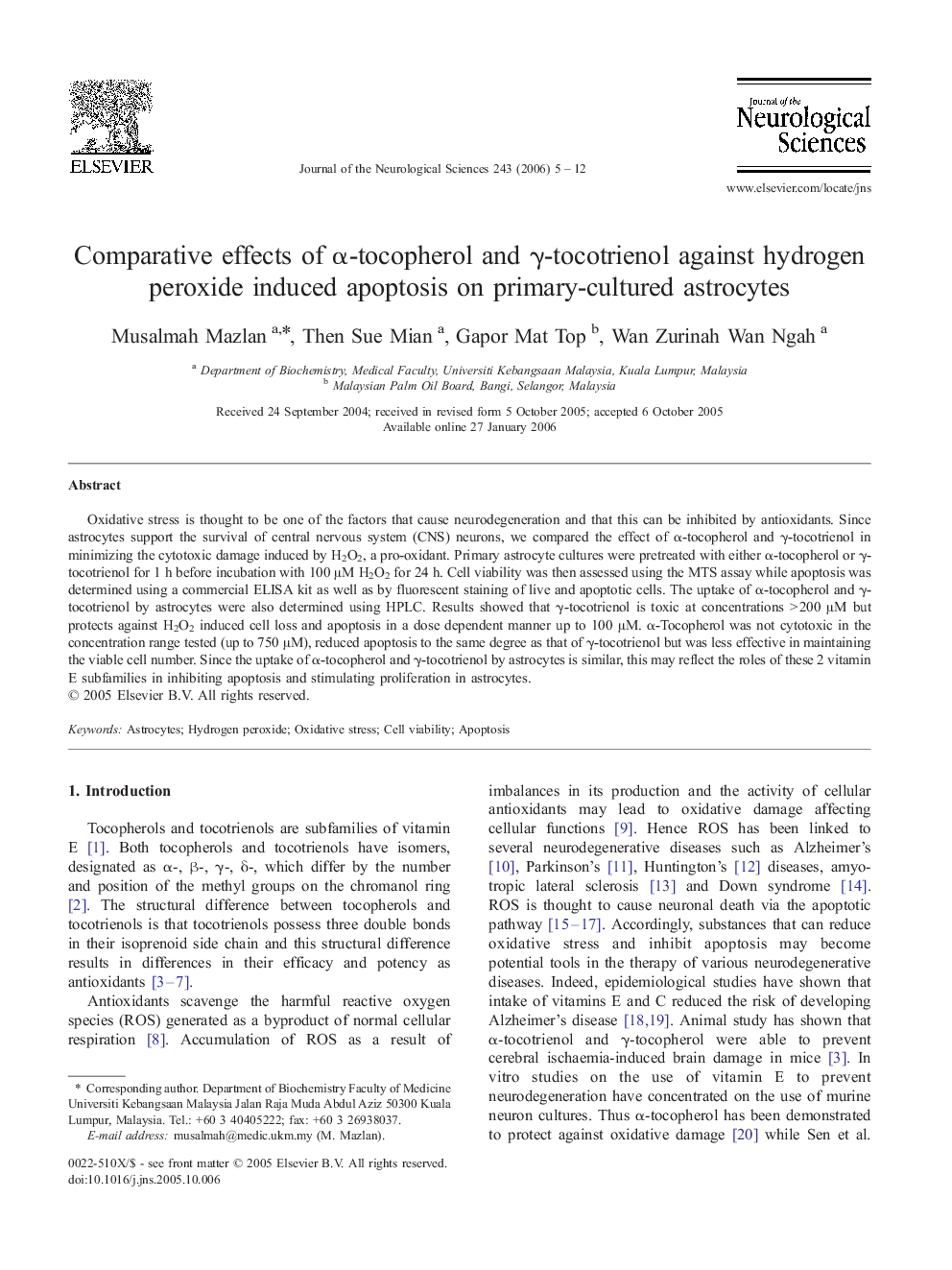| Article ID | Journal | Published Year | Pages | File Type |
|---|---|---|---|---|
| 1916763 | Journal of the Neurological Sciences | 2006 | 8 Pages |
Oxidative stress is thought to be one of the factors that cause neurodegeneration and that this can be inhibited by antioxidants. Since astrocytes support the survival of central nervous system (CNS) neurons, we compared the effect of α-tocopherol and γ-tocotrienol in minimizing the cytotoxic damage induced by H2O2, a pro-oxidant. Primary astrocyte cultures were pretreated with either α-tocopherol or γ-tocotrienol for 1 h before incubation with 100 μM H2O2 for 24 h. Cell viability was then assessed using the MTS assay while apoptosis was determined using a commercial ELISA kit as well as by fluorescent staining of live and apoptotic cells. The uptake of α-tocopherol and γ-tocotrienol by astrocytes were also determined using HPLC. Results showed that γ-tocotrienol is toxic at concentrations > 200 μM but protects against H2O2 induced cell loss and apoptosis in a dose dependent manner up to 100 μM. α-Tocopherol was not cytotoxic in the concentration range tested (up to 750 μM), reduced apoptosis to the same degree as that of γ-tocotrienol but was less effective in maintaining the viable cell number. Since the uptake of α-tocopherol and γ-tocotrienol by astrocytes is similar, this may reflect the roles of these 2 vitamin E subfamilies in inhibiting apoptosis and stimulating proliferation in astrocytes.
